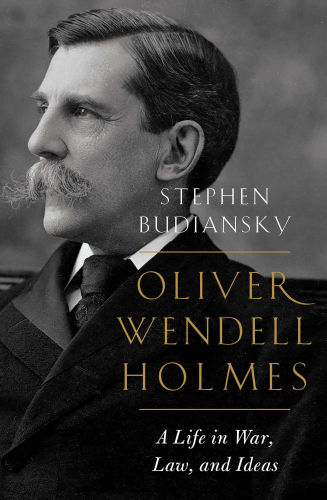
Oliver Wendell Holmes
A Life in War, Law, and Ideas
کتاب های مرتبط
- اطلاعات
- نقد و بررسی
- دیدگاه کاربران
نقد و بررسی

Starred review from March 1, 2019
A top-notch new biography of Oliver Wendell Holmes Jr. (1841-1935).Turning the influential judge's life into a page-turner seems a highly difficult task, but journalist and historian Budiansky (Code Warriors: NSA's Codebreakers and the Secret Intelligence War Against the Soviet Union, 2016, etc.) succeeds admirably. The son of a well-known physician and an abolitionist, Holmes dropped out of Harvard to enlist in 1861. During three years of Civil War service, he suffered terribly and almost died. The war eliminated his youthful ideals but may have contributed to his judicial philosophy. Recovering from injuries, he completed law school and launched a legal career, impressing colleagues with his charm and legal scholarship. His writing is still quoted, and his briefs were more succinct than most. Appointed to the Massachusetts Supreme Court in 1882 and U.S. Supreme Court in 1902, Holmes became a major figure in overturning the traditional view that law stems from authority--codes, the Bible, the Constitution--in favor of legal realism, which interprets law through its effect on society. Although still known as the "great dissenter" (not exactly a mark of success), his decisions made him popular among progressives and provided legal support for economic regulation and the expansion of personal freedom. Conservatives may cringe at his quip, "I really like paying taxes. With them, I buy civilization," but Budiansky emphasizes that Holmes' vaunted liberalism was evident only in his legal decisions and sometimes not even there. An abolitionist before the war, he showed little sympathy for African-Americans afterward. He opposed women's suffrage and despised labor unions, socialists, and other movements that claimed to oppose injustice. Yet, a man of "skeptical temperament to the core...he never mistook his own views for eternal truth." Absent a clear danger, he maintained that obnoxious opinions deserved the same rights as his own. This remains a minority view in America, and legal realism, in decline since the 1960s, shows no signs of reviving.An entirely fascinating biography of one of America's most important legal minds.
COPYRIGHT(2019) Kirkus Reviews, ALL RIGHTS RESERVED.

April 29, 2019
Historian and journalist Budiansky (Code Warriors) delivers a well-crafted and accessible biography of Supreme Court Justice Oliver Wendell Holmes (1841–1935). Drawing on previously unpublished letters and other sources, Budiansky illuminates Holmes’s life inside and outside the courtroom: Holmes fought (and nearly died) for the Union in the Civil War, and his letters from the front offer vivid, compelling descriptions of day-to-day horrors and insight into how the war influenced his philosophy, making him skeptical of certainty but nonetheless committed to action. Though happily married, Holmes had numerous long and close relationships with women, with whom he regularly corresponded; he comes across as an erudite correspondent whose respect for the equality of women was far ahead of his time. Budiansky’s discussions of Holmes’s work on the Supreme Court after his 1902 appointment cites both his influential majority decisions and dissents—such as his dissent in Abrams v. U.S., which introduced the now-deeply-embedded idea that America is best served not by limiting speech but by protecting “the free trade of ideas”—and notes contradictions between Holmes’s private beliefs and his judicial opinions. This wide-ranging examination of Holmes as an individual and of the law he helped make will appeal to those with an interest in constitutional law as well as to general readers. Photos.

June 21, 2019
Budiansky's books have included studies of codebreaking (Code Warriors), a biography of composer Charles Ives's (Mad Music), books on warfare, spying, and animal intelligence. Here, he takes on the life and works of legal scholar and U.S. Supreme Court Justice Oliver Wendell Holmes Jr. (1841-1935) with insight and panache. Drawing on previously unpublished correspondence, Budiansky paints a nuanced picture of this exceptionally influential judge (30 years on the Court), whose writings and decisions shaped a new approach to law and legal realism: the law is not a set of formulae but a living thing; judges respond to changes in their times to keep the law alive. Taking Holmes's personal life seriously--his experience in the Civil War, where he was injured three times, his relations with his wife and many friends--the author makes a dry life of the mind into a lively life of a man, and a very appealing one at that. Former Justice Antonin Scalia's originalism still dominates the Supreme Court, but it's refreshing to be reminded of Holmes's ideas, which shaped American legal thinking for more than half a century. VERDICT A winner from start to finish, this is a natural fit for anyone who enjoys history or biography.--David Keymer, Cleveland
Copyright 2019 Library Journal, LLC Used with permission.

























دیدگاه کاربران